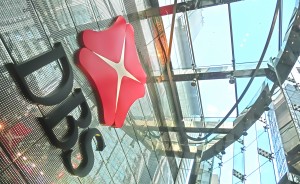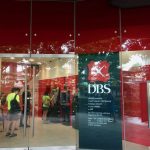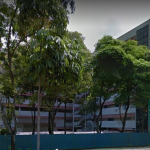Extends USD1.36 billion in green loans to support companies in advancing corporate sustainability
DBS Bank has ranked first in Bloomberg’s Asia (ex Japan) league tables for green loans for its role as Mandated Lead Arranger (MLA) from 1 January this year to 25 August.

During this period, DBS extended USD1.36 billion worth of green loans across eight deals to finance eligible green projects such as renewable energy projects and green buildings. The projects aim to address key areas of environmental concern such as climate change, natural resources depletion and loss of biodiversity, among others. Around one third of these green loans complied with the additional and stricter criteria and guidelines of the Green Loan Principles under the Loan Market Association and the Asia Pacific Loan Market Association.
DBS has been involved in several landmark transactions that promote sustainable development including: M+S’ SGD1.95 billion green loan for Marina One which is the largest to date by a real estate company in Asia; Guocoland’s SGD730 million green loan for the development of a new luxury residential cum commercial development at Tan Quee Lan Street; and Chenya Energy’s NTD7.2bn project finance facility to develop the Changhua 1 & 2 180MW floating solar project which is Taiwan’s largest.
Yulanda Chung, Head of Sustainability, Institutional Banking, DBS said that responsible banking is a key pillar of DBS’ approach to sustainability and is heartened that more companies are now seeking to advance their corporate sustainability agenda through sustainable financing.
“In 2020, we continue to see a good mix of sustainable financing deals across the markets we operate in, and across sectors. The green loan market continues to be dominated by borrowers in the real estate sector, but we are now involved in others such as financing renewable energy equipment makers and electric vehicle battery plant. The reason for the good momentum is that customers increasingly want to incorporate sustainable practices into their overall business strategy,” Chung said.
To incentivise clients to be more sustainable, DBS also structures various forms of sustainable financing solutions such as sustainability linked loans. These loans are based on the companies’ environmental, social and governance (ESG) objectives to support and advance environmentally and socially sustainable economic activity. The bank incentivises the sustainability performance of the company by offering a reduction in interest rates when the latter achieves predetermined ESG targets. Sustainability linked loans give borrowers the flexibility to use the loan for whatever purpose they see fit, unlike green loans whose proceeds are intended only for earmarked green activities.
“Clients are able to leverage such incentives for meaningful sustainability impact, while we play our part as a purpose-driven bank, to motivate this positive transition and strengthen our banking relationships,” she added.
The development of Singapore’s sustainable financing landscape continues to make steady headway, driven by supportive policies from regulators and broader acceptance of green financial instruments by customers. Testament to this growing traction, DBS concluded 35 sustainable financing transactions amounting to about SGD 5 billion in 2019, translating to an increase of approximately 60% from SGD 3.1 billion the year before. To drive further progress, DBS advocates scaling up transition finance and supporting clients to adopt incremental but instrumental solutions – all of which are necessary to broaden and deepen the market.
Over the last two-and-a-half years, DBS has done around 100 sustainable financing deals worth SGD12 billion which include green loans and sustainability-linked loans.
Bloomberg League table for APAC ex Japan Green Use of Proceeds (UoP) Loans
Role: Mandated League Arranger (the most prevailing league table, counted by syndicated/club deals and by the role a bank played)
| Rank | Bank | Volume
(USD m) |
No. of deals | Table share (%) |
| 1 | DBS Group | 1,360 | 8 | 12.91 |
| 2 | Oversea-Chinese Banking Corp | 993.11 | 7 | 9.43 |
| 3 | KB Financial Group Inc | 508.74 | 3 | 4.83 |
| 4 | HSBC | 428.16 | 5 | 4.06 |
| 5 | Standard Chartered Bank | 388.74 | 3 | 3.69 |
| 6 | Korea Development Bank | 357.56 | 3 | 3.39 |
| 7 | L&T Financial Services | 280.39 | 2 | 2.66 |
| 8 | Mitsubishi UFJ Financial Group Inc | 255.16 | 3 | 2.42 |
| 9 | Sumitomo Mitsui Financial | 252.81 | 4 | 2.40 |
| 10 | Sumitomo Mitsui Financial | 252.81 | 4 | 2.40 |
DBS drives efforts to develop Asia’s sustainability-linked bonds market
Table of Contents
DBS has been steadily supporting its corporate clients to mobilise capital market financing via the issuance of green bonds. In 2019, the bank underwrote over SGD 4 billion worth of green bonds, with the raised proceeds used to finance a number of projects in renewable energy, clean transportation, energy efficiency, and water and wastewater management sectors across the region.
Green loans such as the first property green loan obtained by M&G Real Estate are aimed at advancing environmental sustainability and until quite recently came under the umbrella of Green Bond Principles.
They now have their own guidelines known as Green Loan Principles (GLP). The green loan market aims to facilitate and support environmentally sustainable economic activity. GLP have been developed by an experienced working party, consisting of representatives from leading financial institutions active in the syndicated loan market, with a view to promoting the development and integrity of the green loan product.
The green loan market aims to facilitate and support environmentally sustainable economic activity. The GLP have been developed by an experienced working party, consisting of representatives from leading financial institutions active in the syndicated loan market, with a view to promoting the development and integrity of the green loan product.
Their aim is to create a high-level framework of market standards and guidelines, providing a consistent methodology for use across the green loan market, whilst allowing the loan product to retain its flexibility, and preserving the integrity of the green loan market while it develops.
The GLP comprise voluntary recommended guidelines, to be applied by market participants on a deal-by-deal basis depending on the underlying characteristics of the transaction, that seek to promote integrity in the development of the green loan market by clarifying the instances in which a loan may be categorised as “green”.






